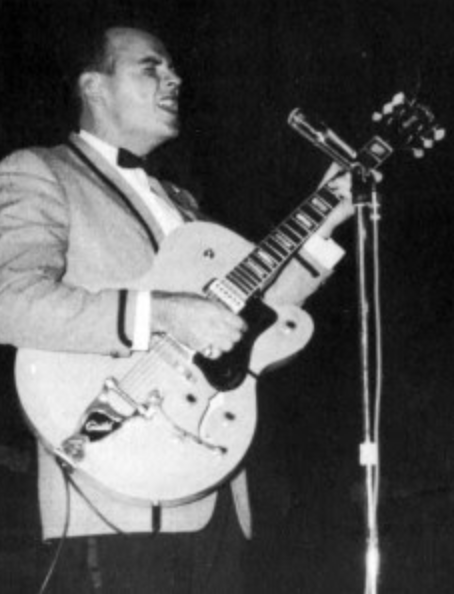Abby Johnson is a singer-songwriter / indie folk artist based in Nashville, TN.
FFO: Phoebe Bridgers, The Lemon Twigs, Fleetwood Mac, Drugdealer, Jungle Green, Angel Olsen, Sheryl Crow, Erin Rae, Sean Thompson’s Weird Ears
With fresh energy and bright intuition, Abby Johnson’s confident self-titled debut (due in late 2021) offers timeless folk songwriting teeming with a classic Nashville golden-era sheen. Johnson draws upon genre-spanning influences and wrangles them effortlessly into her own expression: “I want my songs to sound familiar, but tell you something new,” she says. The duality of Laurel Canyon nostalgia and indie rock blend effortlessly in her songs, polished further by the airtight backing band of fellow Nashvillians, Ornament (and produced by the band’s drummer, Ryan Donoho).
Raised in North Carolina on the earnest mythos of Taylor Swift, she describes her first songs as “diary entries — playing guitar alone in my bedroom until I was twenty three.” Moving to Nashville for college introduced her to an immersive musical community, where she steeped in the influence of folk-and-country stalwarts like Emmylou Harris and Bonnie Raitt in equal proportion to more contemporary indie songwriters like Phoebe Bridgers.
In early 2020, she hoped to become more involved in her local music scene, not only as a supportive showgoer, but as part of the bill. What was planned to be Johnson’s debut performance was canceled due to the pandemic — but that didn’t discourage her from releasing a slew of stunning singles (“Under the Weather / I Can’t Wait” and “Grow / Cryin”) later that year. Ranging from a willowy croon recalling Patsy Cline to a swagger evoking Liz Phair, her singular voice found eager ears.
Last fall, and with Ornament in tow, Johnson tracked her first full-length LP with engineers Kyle Buckner and Drew Carroll (who also mixed at The Bomb Shelter). The much-anticipated record is striking: Muscle Shoals-esque horns, swirling string arrangements (Rowen Merrill), weeping pedal steel (Luke Schneider), lo-fi drum machines, and searing, twangy guitar licks that recall 70’s L.A. session cats all cohere seamlessly around Johnson’s sing-along melodies. Heart-on-sleeve sincerity is tempered by a cool casualness as she delivers buoyant rockers (“Durango”) and plaintive ballads (“Annie’s House”) alike.
“Ornament is my favorite band,” Johnson says. “Having them beside me during this process made me feel confident we were crafting a rock solid record.” The trio gels naturally as her backing band, creating a cohesive sound throughout the record. Producer Ryan Donoho encouraged her to draw upon her rock vocalist influences, like Linda Ronstadt, more unabashedly. Of album opener, Durango, Johnson shares, “I played it for him, and he told me to belt it. He transformed the way I thought about my singing voice and writing style. A sad little number about leaving town post-break up turned into an anthem. From there, I found my footing as a songwriter. My sad songs weren't as sad as I thought. I channeled Linda Ronstadt as much as I could.” The result isn’t a Ronstadt impression, but an incorporation of her vocal approach into a newer, more lo-fi, folk-rock sound.
On the groovy, gorgeous “Watch the Angel Go,” Johnson explores the respite of relationships between women: “I was tired of writing about men who wronged me, so I thought about the women who have treated me right.” With these women, she finds her ‘holy ground’ on the checkered dance floor, where smooth, psychedelic guitar solos and a swaying brass section eclipse a spurned love.
In addition to music, Johnson is known and admired for her film and photography work. Capturing the mood of a scene in a single snapshot is an ability she translates to her vivid songwriting: bringing the subtlest details into sharp focus — vignettes in a soft-grained atmosphere. Intimacy and longing push and pull thematically, as well as a sense of motion: driving through the desert; penning love letters in the mountains; and pulling up a chair to a grandmother’s kitchen table. These songs are rooted but traveling, moseying through American folk-pop traditions and toward something altogether fresh and dreamlike.

